New pressure for a special legislative session
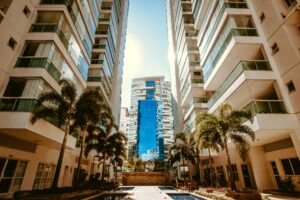 This week I’ll be in Miami to address the first joint meeting of Key Biscayne condominium association presidents and property managers. They’re at ground zero for what some describe as a pending collapse of Florida’s condominium market. At issue is the December 31 deadline for 30 year-old or older high-rise condo buildings to undergo mandatory milestone structural safety inspections and to complete reserve studies so they’ll know how much money to begin saving toward necessary capital repairs and maintenance. The Florida Legislature passed these requirements in 2022 through Senate Bill 4-D and follow up Senate Bill 154 following the June 2021 collapse of the Champlain Towers South Condominium in Surfside that killed 98 people. That condo association had deferred making repairs recommended by engineers.
This week I’ll be in Miami to address the first joint meeting of Key Biscayne condominium association presidents and property managers. They’re at ground zero for what some describe as a pending collapse of Florida’s condominium market. At issue is the December 31 deadline for 30 year-old or older high-rise condo buildings to undergo mandatory milestone structural safety inspections and to complete reserve studies so they’ll know how much money to begin saving toward necessary capital repairs and maintenance. The Florida Legislature passed these requirements in 2022 through Senate Bill 4-D and follow up Senate Bill 154 following the June 2021 collapse of the Champlain Towers South Condominium in Surfside that killed 98 people. That condo association had deferred making repairs recommended by engineers.
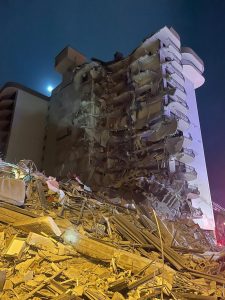
Champlain Towers South Condominium, Sunrise, FL, June 25, 2021. Credit: Miami-Dade Fire Rescue
The result is that many associations have been increasing monthly condo fees and making special assessments of up to tens of thousands of dollars on each unit owner. Part of the fee increase has also been driven by higher property insurance costs from tougher underwriting requirements and higher replacement values. Ron Hurtibise in his weekend Sun Sentinel article reported the average cost of a commercial condo association policy more than doubled in the past two years, up 103% from $72,570 to $147,381 for Florida’s 13,841 condo associations. Condo unit owner policies have increased an average of 27.7% over the last two years.
I’ll be providing my insight to the Key Biscayne groups as they begin preparing their new 2025 associations’ budgets. This comes amid an increasing clamor for the legislature to provide temporary relief from these new rules before its next regularly scheduled session in March 2025. As we’ve reported in these pages, building officials in some communities report their effected condo buildings have been slow to get the required year-end inspections underway.
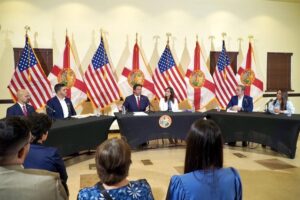
Governor DeSantis roundtable on condominium safety in Miami Lakes, FL, September 9, 2024. Courtesy, EOG
In late July, the Governor said he would be open to the legislature holding a special session. Last Monday, he and the Lieutenant Governor held a roundtable discussion with condo unit owners and association managers and declared “We do need to do something this year. I don’t think this is something that you can just put off until next March or April.” He suggested low-interest or no-interest loans to help with repairs but stopped short of calling a special session himself.
Rep. Tom Fabricio (R-Miami Lakes) attended the roundtable and said this is “probably the most important issue in the state of Florida at this time,” given that condo owners are being priced out of their homes. He said many condo boards have a lot of deferred maintenance leading to “excessive” assessments to meet requirements of the new rules. Former State Senator Jeff Brandes is also urging the legislature to reassess its approach to building safety. In a recent column, Is blowing up Florida condo associations the only solution to preventing condo collapses?, he wrote “While well-intentioned, this legislation has created new challenges.”
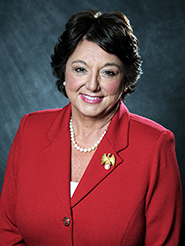
Florida Senate President Kathleen Passidomo
Outgoing Senate President Kathleen Passidomo (R-Naples) said last month she has “no intention at the present time” to hold a special session, while acknowledging that “no law is perfect and sometimes issues arise during implementation,” but the time and place to address those is during legislative committee meetings leading to the March session. Calling the Surfside collapse “an entirely preventable tragedy,” she also noted in a memorandum to Senators “misconceptions and inaccuracies” about the new rules. For example, she stated that more involved phase two inspections are only required if the initial milestone inspection reveals “substantial structural deterioration.” Likewise, the initial reserve study and those that follow every ten years are meant for planning and budgeting for major repairs and replacement of common elements based on the visual inspection. “Unless there is an immediate safety problem, the law does not require reserves to be fully funded at the completion of the reserve study,” she wrote. Her memorandum includes the requirements of the new rules along with a “frequently asked questions” section on reserves and should be required reading for all stakeholders.
This issue has received heavy coverage in both state and national news media. They include various statistics:
- Condo unit prices have been reduced by up to 40% by owners looking to sell and get out from rising expenses.
- Condo sales have declined by as much as 27% in some Florida markets, as we shared in our June newsletter.
- Condo association fees increased an average of nearly 60% in Miami-Dade County from 2019-2024 (from a median $567 to $900) and more than 56% in Broward County (from $392 to now $613 median). West Palm Beach saw average fees increase 13% in just the past year.
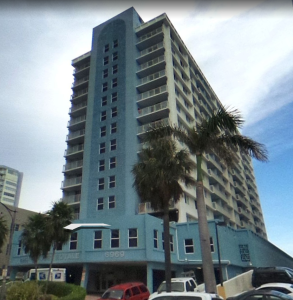
Nearly 90% of the 20,000-plus units listed for sale in late August in Palm Beach, Broward and Miami-Dade were in buildings 30 years-old or older, many built before tougher post-Hurricane Andrew building standards.
This issue has additional property insurance implications. Anne Geggis of the Palm Beach Post reports some condo associations are settling for sublimited insurance, policies that pay less than full replacement cost. As a result, any condo unit sales must be cash-only as banks do not offer mortgages for properties not fully insured – further impacting the condo real estate market. The Insurance Journal reports some condo associations have discussed joining together to form their own captive insurance companies as allowed under Florida law, but “so far, little has materialized.” We’ll continue to follow this story and report back any new developments in this newsletter.
LMA Newsletter of 9-16-24

